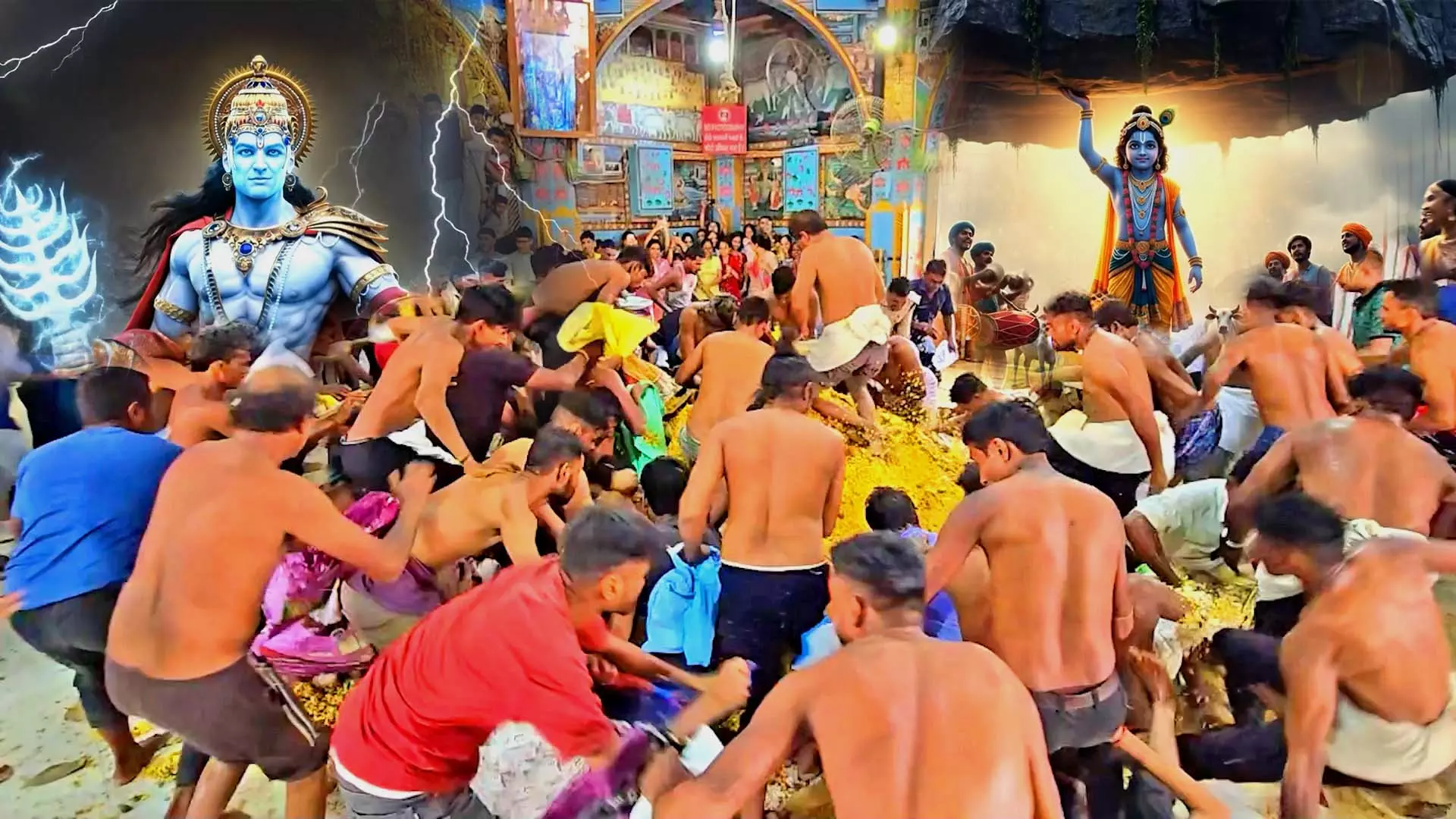
Annakoot: When stealing God’s feast brings blessings
At the unique Annakoot Utsav, devotees at Dakor’s Ranchhodraiji Temple are allowed — even encouraged — to steal the Lord’s food

Imagine a festival where thousands gather not just to worship but to joyfully steal God’s feast. That’s the unique Annakoot Utsav at Dakor’s famous Ranchhodraiji Temple in Gujarat — a spectacle of devotion, energy, and food.
Every year, the day after Diwali, this temple celebrates the grand Annakoot, which literally means “mountain of food”. Nearly 3,000 kilograms of food are prepared and offered to Lord Ranchhodraiji, making it one of the biggest feasts in Gujarat’s temple traditions.
The offering includes rice, boondi, sweets, fruits, and ghee-based dishes. As the temple bells ring, devotees from over 80 nearby villages rush inside shouting “Jai Ranchhod!” to grab the prasad. It’s believed that even a morsel of this food brings good health and divine blessings for the entire year.
Also read: In photos: How India celebrated Diwali 2025
The legend behind the feast
The festival traces its roots to the story of Lord Krishna lifting the Govardhan Hill. When Indra, the god of rain, unleashed a fierce storm on Vrindavan, Krishna held up the hill on his little finger for seven days to protect the people. In gratitude, the villagers prepared a huge meal — the first ever Annakoot.
At Dakor, the day begins with the Govardhan Puja, followed by the offering of the massive food spread to Lord Ranchhodraiji. A giant 1.5-kg boondi laddoo is placed on top of the mountain of food, while the deity is adorned with a tulsi garland — symbolising purity and devotion.
Also read: Kerala temples are embracing inclusivity; Koodalmanikyam shows the way
The sacred ‘loot’
But what truly sets this festival apart is what happens next. Once the Maha Aarti ends, the temple doors open — and devotees rush in to grab the prasad in what’s fondly called the sacred Annakoot loot.
Temple priest Janak Maharaj explains, “This is the only day when devotees are allowed — even encouraged — to steal the Lord’s food. It’s considered an act of devotion, not wrongdoing.”
What might appear as a chaotic scramble is, in reality, a beautiful expression of joy, faith, and togetherness — a living tradition that has continued for over 250 years.
Also read: Green crackers explained: Do they really reduce pollution?
(The content above has been transcribed from video using a fine-tuned AI model. To ensure accuracy, quality, and editorial integrity, we employ a Human-In-The-Loop (HITL) process. While AI assists in creating the initial draft, our experienced editorial team carefully reviews, edits, and refines the content before publication. At The Federal, we combine the efficiency of AI with the expertise of human editors to deliver reliable and insightful journalism.)

